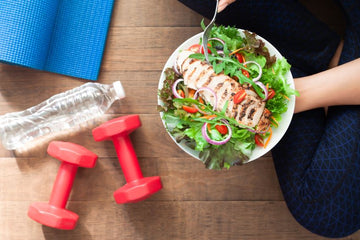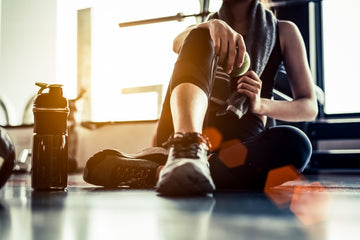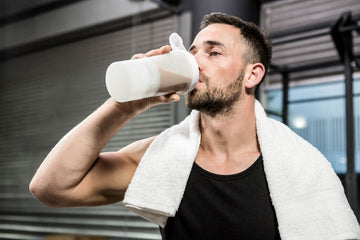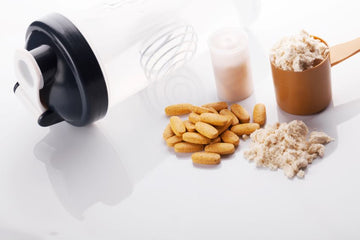A good diet is key to obtaining good results in the practice of any sport. If that modality is swimming, which is one of the most complete sports, but which requires the highest degree of commitment, diet becomes essential. The diet for swimmers must be based on a varied and balanced intake of products where the consumption of carbohydrates and proteins abounds and there is sufficient hydration.
Among the main tips for swimmers , before entering into a more specific diet design, it is advisable to maintain orderly and planned intake routines , with at least five meals a day and well distributed throughout the day.
What kind of diet should a swimmer have
Nutrition in swimming is vital to improve the performance of the athlete because it gives them more energy when practicing the exercise, either during training or in competition, and also during rest periods.
All the nutritional guidelines of each athlete must be based on their tastes, their needs and their training rhythm , since good routines will allow, together with physical capacity, to achieve the proposed objectives. In this sense, the advice of a nutritionist dietitian is of great help.
What is the basic scheme in nutrition for swimmers?
Carbohydrates are the energy nutrients par excellence. Their daily intake should range between 5-7 grams per kilogram of body weight for moderate workouts (1 hour a day) and 7-10 grams per kilogram of body weight for longer workouts , up to 4 hours a day.
Proteins are added to carbohydrates. You have to consume 1.2 to 1.4 grams per kilogram of body weight . Vitamins and minerals are less relevant, but they must also be consumed in adequate proportions, without going into deficit or exceeding the intake.
With respect to fats , the fork goes from 1 to 2 grams per kilo of weight and day . The fats to be consumed must be of good quality, avoiding refined ones and opting for unsaturated ones.
Transferring this to food itself, some sources of necessary carbohydrates are pasta, legumes, fruits, cereals and bread . The most prominent protein foods are poultry, lean meat, fish, eggs, dairy products, and also legumes . Minerals and vitamins are found in fruits and vegetables.
The diet for swimmers must be complemented with a good dose of hydration , since the misconception continues that since the athlete is in the pool or in the sea, they do not become dehydrated. The formula is to ingest liquid in a dosed way , hydrate before and after training.
Diet during competition
The competitive period forces athletes to carry out a more orderly routine, with more demanding planning. In this way, before the competition you have to stop training one or two days before the competition and follow a diet that includes 7 to 10 grams per kilogram of body weight.
The same day of the training, the diet should include skimmed dairy products, cereals, bread, lean meats or low-fat fish, and fruit , as well as water. In the event that several tests have to be held that same day , the planning will be subject to that calendar.
If more than three hours pass between the two tests, you can eat pasta, fish, fruit and hydrate well . For competitions with an interval of two to three hours, reduce the heaviness of the meals: low-fat yogurt, bread with fresh cheese, honey, fruit... One last possibility is that both tests take place in a period of one hour , for which you will have to opt for sports drinks and energy bars or gel.
After the tests, you also have to take care of your diet and rehydrate the body . You can follow a scheme similar to that of the pre-competition period.
What foods should a swimmer avoid?
Michael Phelps, the athlete with the most Olympic medals—excluding Paralympians—maintained a diet of 12,000 calories a day when he was active, which is equivalent to 12 hamburgers with their fries, dessert, and corresponding soft drinks.
This caloric index is almost five times higher than that of a normal person , which is around 2,500 calories. To reach such a high level it is mandatory to go to foods very rich in calories, such as hamburgers, for example. And on more than one occasion, Phelps has acknowledged his fondness for them.
However, good planning in the diet , as well as in the training routines, is key to achieving good results, because if this does not exist, you run the risk of making the same mistake as the swimmer Ryan Lochte . With 12 medals in the JJ. OO., Lochte was banned in May 2018 for a period of 14 months, which prevented him from competing until July 2019.
During that time, the American increased his weight until he reached almost 100 kilograms in August 2019, a few weeks after returning to competition. At that time, he opted for a radical change that led him to lose 10 kilograms in two months and become competitive again in the world of swimming.
Lochte himself acknowledged that the sanction, along with the birth of his daughter and losing interest in the competition led him to go to fast food and eat hamburgers with fries one after another.
Give up ultra-processed foods
Phelps and Lochte are two clear examples that a professional swimmer must eat a lot of food, but, at the same time, they must take maximum care of their diet. When Phelps competed, he did not give up pizzas, sandwiches, hamburgers, chips and sauces, but he maintained perfect control of these foods and intense training routines that led him to spend around 10,000 calories a day.
It is not, therefore, about gorging on junk food because it has a lot of caloric density, but rather reaching those calorie ratios through rice, pasta, steaks and other foods mentioned above.
In the diet of a swimmer, ultra-processed foods that have excess sugars, poor quality fats and refined flours must be exempt. To these we must add alcohol, carbonated drinks, drinks with theine and caffeine, pastries and very fatty products.
In times of out of competition you can resort to these foods, but always keeping a control on your intake and assuming that the more calories you take, the greater the intensity of the training in the pool and gym.
Supplementation for swimmers
Swimmers can resort to sports supplementation as a complement to food, but never as a substitute. The idea is to achieve an improvement in physical performance , which will only be possible if it is as prescribed as the diet itself.
In the world of sports there is a wide variety of nutritional supplements . Some of them, such as creatine or isotonic drinks, are of great help in this modality.
Creatine in the diet for swimmers
Creatine offers benefits for swimmers in the training period. These supplements help improve muscle congestion and increase strength . It is especially useful for sprint swimmers, although it can also be taken by endurance testers.
Best Creatine from Scenit Nutrition is perfect for events that require explosive, high-intensity performances. In swimming, this rapidly absorbed monohydrate improves sprint capacity in single efforts, power and the work to be done in series of maximum muscle contractions.
Isotonic drinks, essential for the hydration process
Isotonic drinks are of great help in long-term training and for rehydration after each session. Best Isotonic is a good example of an optimal restorative product.
Its composition includes carbohydrates that provide energy for muscle recovery and minerals that help recover the ions lost through sweat during exercise.
The usual thing with these products is to go to them whenever the training or test lasts more than an hour . In competitions this only happens in endurance tests, but training does require that minimum effort.
muscle recoverers
One last proposal for supplementation in nutrition for swimmers is the intake of muscle recoverers. The combination of BCAAs and proteins guarantees a correct recovery of the muscles after the effort.
These products, such as BCAA Glutamine from Scenit Nutrition, are not as necessary in endurance athletes, but they are in those who train muscular strength, and swimming does require it. In addition, glutamine promotes muscle development thanks to protein and glycogen synthesis.
Nutrition for swimmers occupies a central aspect in their physical preparation. This must be well planned, with at least five meals a day, and always under the advice of a specialist in this field. Likewise, the rest between training sessions is another section that must be respected to the same degree.





